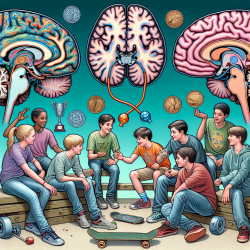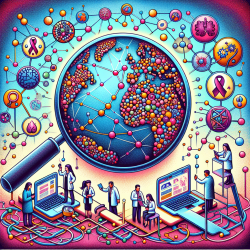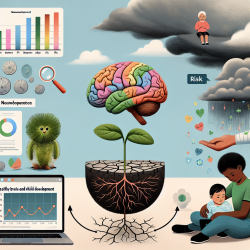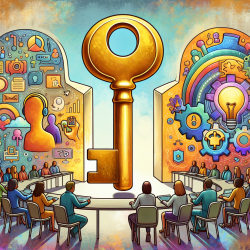Introduction
Adolescence is a period marked by significant social and cognitive changes. A recent study titled "Friendship changes differentially predict neural correlates of decision-making for friends across adolescence" sheds light on how evolving friendships impact adolescents' decision-making processes, particularly in risk-taking scenarios. This blog explores the implications of these findings for practitioners working with adolescents, focusing on how understanding these dynamics can enhance therapeutic outcomes.
Key Findings
The study, conducted over five waves with 173 adolescents, utilized fMRI to observe how friendship changes influence decision-making. It was found that:
- In early adolescence, maintaining the same best friend is associated with more adaptive risk-taking for that friend.
- In late adolescence, having a different best friend leads to more adaptive risk-taking.
- The amygdala's sensitivity to friendship changes varies across adolescence, impacting social motivation and decision-making.
Implications for Practitioners
Understanding these dynamics can significantly impact how practitioners approach therapy with adolescents. Here are some practical applications:
- Tailored Interventions: Recognizing the importance of friendship stability or change at different adolescent stages can help tailor interventions. For younger adolescents, fostering stable friendships may encourage positive decision-making. In contrast, encouraging exploration and new friendships in older adolescents could enhance adaptive risk-taking.
- Focus on Social Skills: Practitioners can focus on developing social skills that facilitate healthy friendship dynamics, which in turn can influence decision-making positively.
- Neural Insights: Understanding the neural correlates, such as amygdala activity, can help in designing interventions that target specific cognitive and emotional processes involved in decision-making.
Encouraging Further Research
While this study provides valuable insights, it also opens avenues for further research. Practitioners and researchers are encouraged to explore:
- The role of different types of friendships (e.g., peer vs. mentor relationships) on decision-making.
- Longitudinal studies that incorporate diverse cultural contexts to understand the universality of these findings.
- Interventions that can leverage these insights to improve social outcomes for adolescents.
Conclusion
The study highlights the nuanced role of friendship dynamics in adolescent development. By understanding these processes, practitioners can better support adolescents in navigating their social worlds, ultimately leading to improved outcomes in therapy and beyond.
To read the original research paper, please follow this link: Friendship changes differentially predict neural correlates of decision-making for friends across adolescence.










